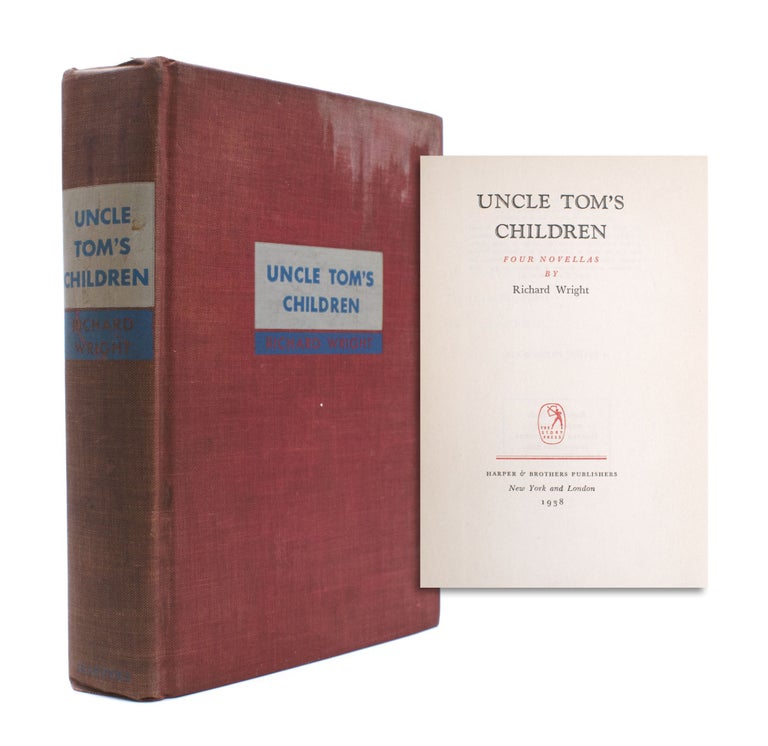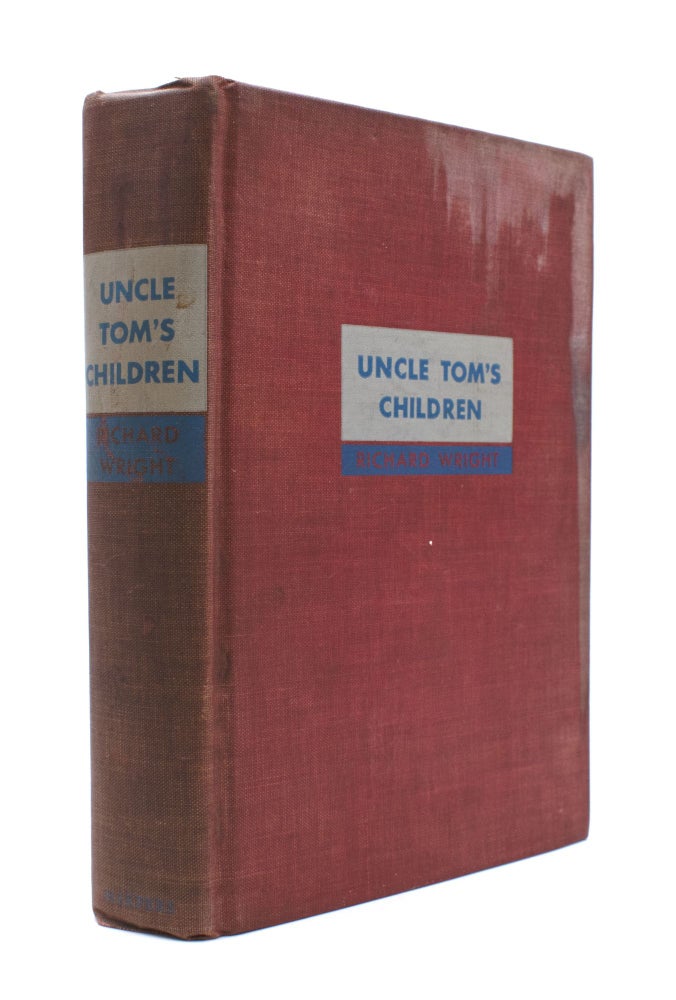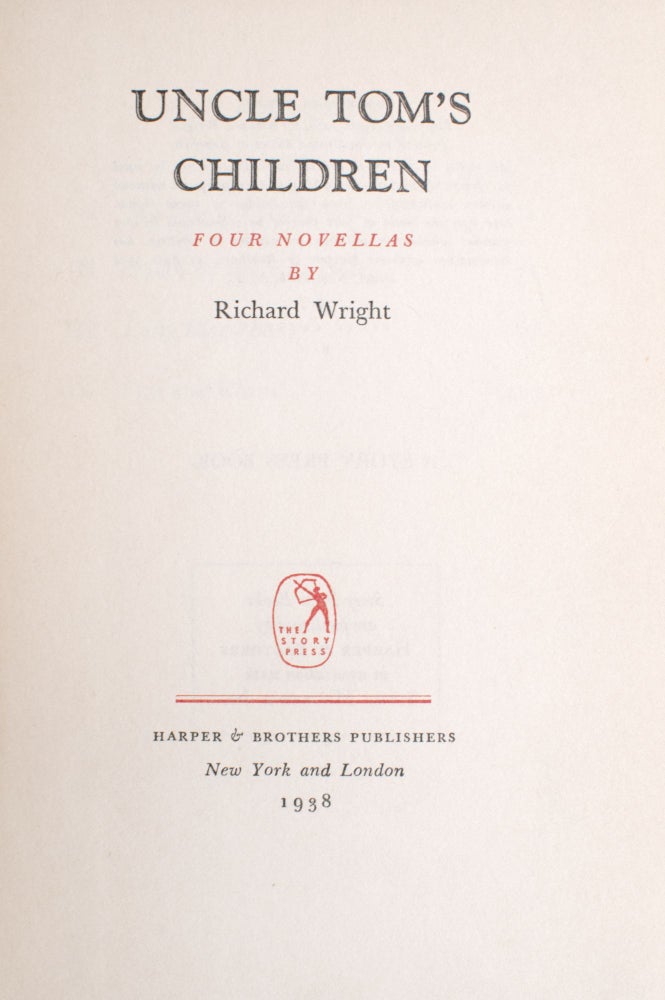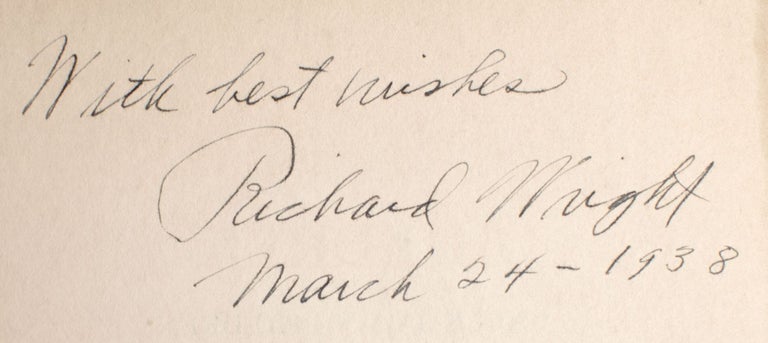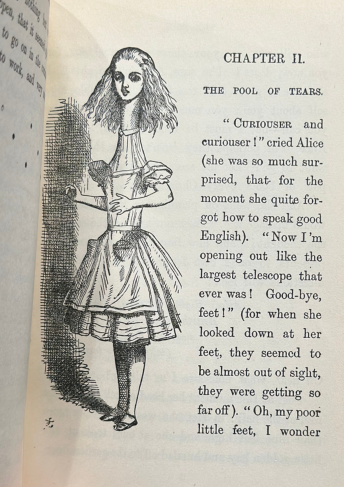Inscribed in 1938
Uncle Tom's Children. Four Novellas.
New York and London: Harper & Brothers Publishers (in association with Story magazine, Inc.), 1938.
Price: $3,500.00
About the item
First edition, first printing with publisher's code B-N. 317pp. 1 vols. 8vo. Inscribed in 1938. Red cloth, with srtaining on the upper cover, else Very Good. Whiteman p. 49; Blockson 6674.
Item #333556
Early inscription on leaf opposite title-page: "With best wishes/ Richard Wright/ March 24-1938."
Reviewing Uncle Tom's Children: Four Novellas in the New York Times Book Review (Apri 13, 1938), Robert Van Gelder asserted: "Mr. Wright employs a talent in some respects comparable to that of [Ernest] Hemingway." There were similarities. Three Stories and Ten Poems (1923) had boasted an award-winning story ("My Old Man" was selected by anthologist Edward J. O'Brien for The Best Short Stories of 1923) and received a sterling endorsement from cultural critic Edmund Wilson in The Dial (October 1924 ), which signaled to the world of letters Hemingway's arrival as a prose writer of the first distinction. (The Old Man and the Sea won the Nobel Prize in 1954.) Twenty-nine-year-old Richard Wright's first book of three hundred seventeen pages contained "Fire and Cloud" (and the expanded 1940 edition included "Bright and Morning Star" which, coincidentally, O'Brien selected as one of the finest American stories published since 1915) and was reviewed by Federal Writers' Project editor Sterling Allen Brown in The Nation (April 16, 1938), who deemed it (as Wilson had for Hemingway's first book) one of the great mosaics of modern violence. Wright's most stately admirer, Anna Eleanor Roosevelt, daughter of Theodore Roosevelt's alcoholic banker brother, Elliott, found Uncle Tom's Children: Four Novellas "so vivid that I had a most unhappy time reading it-a well-meaning plaudit that helped spur the writing of Native Son. "I had written a book which even bankers' daughters could read and weep over and feel good about," the Mississippi-born fictionist later contended, and "I swore to myself that if I ever wrote another book. . . it would be so hard and deep that they would have to face it without the consolation of tears."

